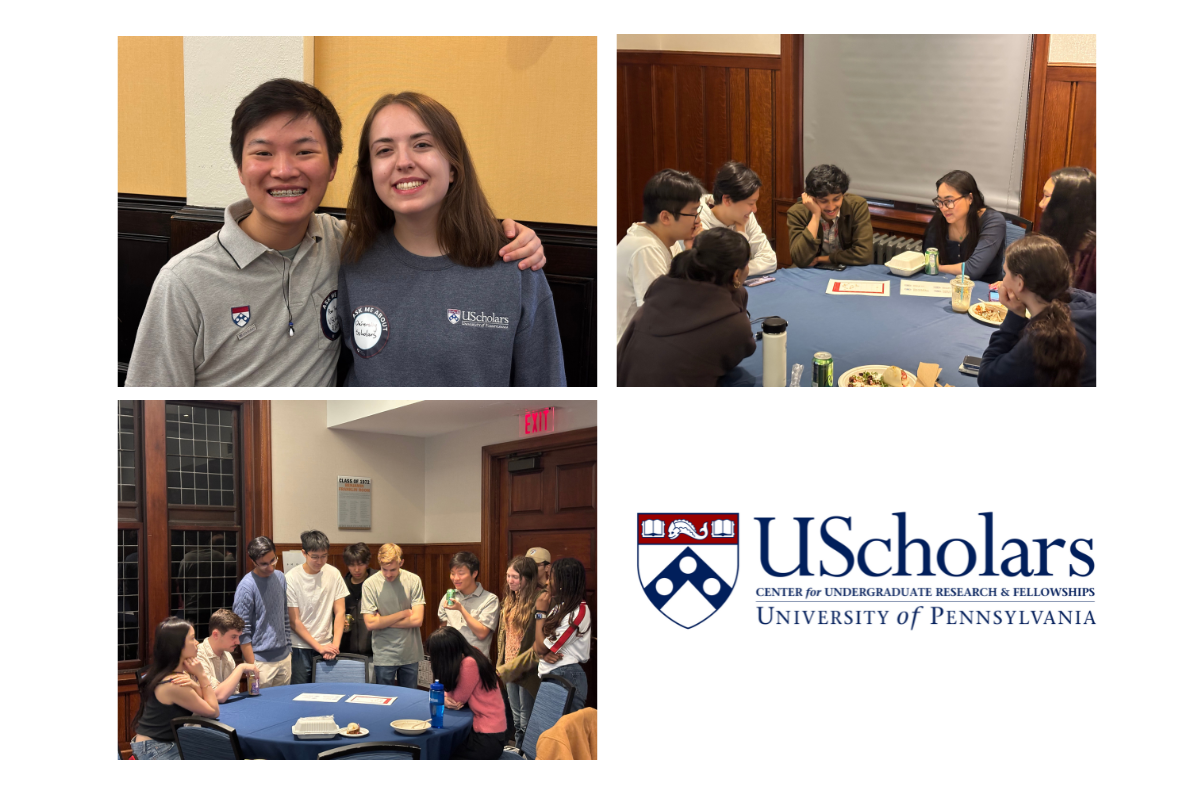
UScholars Community
The UScholars program builds community by prioritizing strong peer-to-peer social supports and administrative supports. With this two-pronged approach, students have an enriching research experience in an environment that promotes respect and mutual appreciation. Read below to learn more about how we construct our scholarly community.
UScholars receive multiple opportunities for individual and small-group advising throughout the year. First-year students will complete an Individual Development Plans (IDP) with the Graduate Fellow and Program Coordinator to discuss research goals and determine actionable next steps towards such goals.
Second-year students must meet with the Program Coordinator once more in the Fall semester to provide a final update on narrowing research interests and connecting with faculty mentors ahead of the May 1 report.
Third- and fourth-year students are strongly encouraged to continue building strong working relationships with the University Scholars administrative staff and seek advising check-in appointments as often as needed throughout their time in the program.
The UScholars Faculty Director and Faculty Council serve as additional advising resources for students. Scholars are strongly encouraged to attend office hours with Faculty Council members to discuss research pathways,as they can answer questions and help students navigate the richness of the University’s research environment.
By the end of sophomore year, each Scholar identifies a Penn faculty mentor who guides the student’s original research project for the duration of their time in the program. This mentor provides the Scholar with the discipline-specific skills and knowledge that is necessary for a successful undergraduate research experience. The faculty mentor also communicates with the Program Coordinator and Faculty Director on their mentee’s research progress and occasionally attend UScholars events.
The UScholars Alumni Mentor Database serves as another layer of support and community for University Scholars. Upon graduating from the University, all program alumni are invited to submit a profile to the database and build a supportive relationship with incoming and continuing Scholars in a voluntary “give what you can” opportunity.
Alumni mentors serve in the following ways:
- Participate in informational interviews about current or past research positions/projects via email, phone, or in-person conversations.
- Develop relationships with current UScholars by sharing appropriate personal information about their own successes, setbacks, school and career choices, experiences, etc.
- Support students through the process of locating a faculty mentor, including facilitating direct connections between a student and former mentor(s) at Penn.
- Introduce Scholars to others in their field, both within and outside of Penn.
- Share insights on research funding, conference, or fellowship applications, as well as the peer-review publishing process, if applicable.
- Serve as a general resource for information, support, and advice for current UScholar students.
University Scholar alums interested in joining the Alumni Mentor Database may submit and complete a profile through the following form: https://upenn.co1.qualtrics.com/jfe/form/SV_9RfMd93PS4QwiGO .
Peer Mentor Groups (PMGs) are an integral part of University Scholars programming and serve as another layer of student advising, support, and cross-disciplinary community for students in the program. All students in University Scholars are placed into a Peer Mentor Group for the duration of their time in the program.
Structure. There are four PMGs that make up the UScholars community. Each PMG is led by three Group Leads (GLs), who partner to support 15 to 20 UScholars within their group. The Group Leads in each PMG are UScholars with research experience in one of the three major disciplines (humanities, social science, or STEM). GLs are responsible for planning and leading PMG meetings throughout the academic year; incorporating incoming first-year and newly accepted Penn students within the UScholars community; and sharing their insights and expertise on the UScholars research pathway. GLs work closely with the UScholars Graduate Fellow and Program Coordinator to organize, plan, execute, and evaluate PMG meetings.
Purpose. Peer Mentor Groups and their accompanying meetings are intended to serve as a means for students to continue their intellectual research-based conversations outside of formal programming. In meetings, GLs may facilitate an informal conversation on research or conference funding applications; selecting a faculty mentor; or how to narrow down a specific research question. Occasionally, PMGs may organize social activities, such as study breaks or game nights around campus. All in all, PMGs serve as a way for students to build cross-disciplinary community around a shared passion for academic research.
Throughout the academic year, the University Scholars program will occasionally convene community-wide events for students. These include the Spring Ice Cream Social, where graduating seniors collect their UScholars commencement cords, and the Winter Hot Cocoa Bar. Students are expected to make every effort to attend these community-wide events.